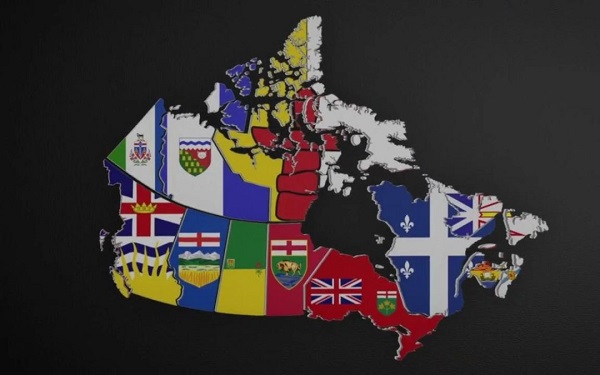International
Zelensky to visit Washington for first meeting with Trump since February

Quick Hit:
Ukrainian President Volodymyr Zelensky announced Saturday he will meet with President Donald Trump in Washington on Monday, following Trump’s summit with Vladimir Putin in Alaska.
Key Details:
- Zelensky said he spoke with Trump for over 90 minutes Saturday, first one-on-one and then with European leaders on the line, thanking Trump for inviting him to the White House. He said the two will “discuss all of the details regarding ending the killing and the war.”
- Trump confirmed the Monday meeting, noting that if discussions with Zelensky are productive, he would then consider another round of talks with Putin. “There’s no deal until there’s a deal,” Trump told reporters in Alaska.
- European leaders released a joint statement after speaking with Trump, saying Ukraine “must have ironclad security guarantees” and welcoming U.S. readiness to provide them.
We had a long and substantive conversation with @POTUS. We started with one-on-one talks before inviting European leaders to join us. This call lasted for more than an hour and a half, including about an hour of our bilateral conversation with President Trump.
Ukraine reaffirms… pic.twitter.com/64IPVhtFaB
— Volodymyr Zelenskyy / Володимир Зеленський (@ZelenskyyUa) August 16, 2025
Diving Deeper:
Ukrainian President Volodymyr Zelensky will visit Washington on Monday for direct talks with President Donald Trump, marking his first U.S. trip since a tense Oval Office meeting in February. Zelensky’s announcement came hours after Trump and Russian President Vladimir Putin concluded a high-profile summit in Alaska on the war that has now dragged on for more than three years.
Trump, who said the talks with Putin “went very well,” insisted that a lasting peace agreement—not a temporary truce—was the only way to end the fighting. That stance aligns closely with Moscow’s view, as Putin has rejected calls for short-term ceasefires while continuing military offensives across Ukraine. “Many, many points we agreed on, most of them,” Trump told reporters after the meeting, though he acknowledged “a couple of big ones that we haven’t quite got there.”
Zelensky, excluded from the Alaska talks, stressed the need for Europe to remain involved. “It is important that Europeans are involved at every stage to ensure reliable security guarantees together with America,” he said, adding that he and Trump discussed U.S. support for stronger security arrangements. European leaders echoed those concerns in a joint statement, affirming that “international borders must not be changed by force” and that any final deal must leave territorial decisions to Ukraine.
While Trump left the door open to another round of negotiations with Putin, he hinted that Zelensky now carries responsibility to “get it done.” He also said Europe would need to play a role in whatever comes next. That was reinforced by French President Emmanuel Macron, German Chancellor Friedrich Merz, Italian Premier Giorgia Meloni, British Prime Minister Keir Starmer, and others, who all signaled readiness to work toward a trilateral summit with U.S. support.
For now, Zelensky will head to Washington on Monday, a meeting that could define the next phase of Trump’s peace push. If progress is made, Trump has suggested he could then sit down with both Putin and Zelensky at the same table. Until then, as the president made clear: “There’s no deal until there’s a deal.”
Censorship Industrial Complex
Senate Grills Meta and Google Over Biden Administration’s Role in COVID-Era Content Censorship

Lawmakers pressed Meta and Google to explain how far White House outreach went in shaping their censorship decisions.
|
A Senate hearing this week discussed government influence on online speech, as senior executives from Meta and Google faced questions about the Biden administration’s communications with their companies during the COVID-19 pandemic.
The session, titled “Part II of Shut Your App: How Uncle Sam Jawboned Big Tech Into Silencing Americans,” highlighted the growing concern in Washington over what lawmakers describe as government-driven pressure to suppress lawful expression.
Senator Ted Cruz (R-TX), who led the hearing, began by declaring that “the right to speak out is the foundation of a free society” and warning that “censorship around the world is growing.”
He accused the Biden administration of pushing technology companies to restrict Americans’ speech during the pandemic, and he faulted both the companies and Democrats for failing to resist that pressure.
“Today, we pick off where the story left off,” Cruz said, pointing to Meta and Google as examples of firms that “were pressured by the Biden administration to censor the American people.”
He pledged to introduce the Jawbone Act, which he said would “provide a robust right to redress when Americans are targeted by their own government.”
Markham Erickson, Google’s Vice President of Government Affairs and Public Policy, defended the company’s approach, emphasizing that its moderation decisions are guided by long-standing internal policies, not by government direction.
“While we are a company dedicated to the goal of making the world’s information universally accessible, that doesn’t mean that we don’t have certain rules,” Erickson said, citing restrictions on “terrorist content, child sexual abuse material, hate speech, and other harmful content.”
He acknowledged that officials in the Biden administration had contacted Google during the pandemic to urge the removal of certain COVID-19 content from YouTube.
But Erickson maintained that the company “develop[ed] and enforce[d] our policies independently” and “rejected suggestions that did not align with those policies.”
Erickson also alleged that Google has a record of resisting censorship demands from foreign governments, citing its refusal to remove politically sensitive videos in Russia despite threats of imprisonment against employees and fines “that exceed more than the world’s GDP.”
Neil Potts, Meta’s Vice President of Public Policy, took a more reflective stance.
He reiterated that Meta has a “foundational commitment to free expression” and acknowledged that the company had yielded to “repeated pressure” from the Biden White House to restrict COVID-related posts, including satire and humor.
“We believe that government pressure was wrong and wish we had been more outspoken about it,” Potts said. He added that Meta “should not compromise our content standards due to pressure from any administration in either direction.”
Potts pointed to policy changes the company has made since then, such as ending its third-party fact-checking program, reducing restrictions on political topics, and adopting what he described as “a more personalized approach to political content.”
These steps, he said, were intended to “return to our ideals about free expression” and “allow for more speech.”
Senator Cruz pressed both executives on whether their companies regretted complying with government demands.
Potts responded that Meta “do[es] regret our actions for not speaking out more forcefully.”
Erickson, however, declined to use similar language, saying Google regularly receives “outreach from a lot of actors” and evaluates flagged material independently.
The exchange grew more pointed as Cruz questioned Google’s removal of a YouTube video that compiled election-fraud claims made by both major parties. Erickson conceded, “Yes, that is news,” when Cruz asked whether statements by presidential candidates about election integrity should be considered newsworthy.
But Erickson defended YouTube’s policies during the 2020 election, saying that after states had certified results, the company acted against “claims of widespread fraud” due to potential “real-world harm.”
Cruz accused Google of ideological bias and suggested the company was “unwilling to express regret for anything at all.”
He contrasted that with Meta’s statement of remorse and concluded that Google’s position reflected “a level of contempt for free speech that does not reflect well.”
Where Erickson had insisted that Google “continued to develop and enforce our policies independently,” the company’s letter to Congress acknowledged that “Senior Biden Administration officials, including White House officials, conducted repeated and sustained outreach” urging the removal of COVID-19 content that did not violate platform rules.
This was somewhat of a departure from the defensive posture Google maintained before the Senate.
|
|
|
|
You read Reclaim The Net because you believe in something deeper than headlines; you believe in the enduring values of free speech, individual liberty, and the right to privacy.
Every issue we publish is part of a larger fight: preserving the principles that built this country and protecting them from erosion in the digital age.
With your help, we can do more than simply hold the line: we can push back. We can shine a light on censorship, expose growing surveillance overreach, and give a voice to those being silenced.
If you’ve found any value in our work, please consider becoming a supporter.
Your support helps us expand our reach, educate more people, and continue this work.
Please become a supporter today.
Thank you for your support.
|
International
Sagrada Familia Basilica in Barcelona is now tallest church in the world

The Sagrada Familia (Holy Family) minor basilica in Barcelona is now the tallest church in the world, standing at 535 ft., surpassing Ulm Germany’s main church, whose construction began in the 14th century.
According to the Sagrada Familia Expiatory Church Construction Board Foundation, as reported Oct. 30 by the Archdiocese of Barcelona, ”the first element that forms part of the cross on the tower of Jesus Christ” was installed, marking the beginning of the final phase of construction of the church’s central tower.
Working at a height of more than 150 metres, the crane operators also make it possible for the Sagrada Família to keep growing and rising up towards the Barcelona sky. 🏗 This video takes a behind-the-scenes look at a day in the life of the Basilica’s crane operators. Don’t miss… pic.twitter.com/8ead28LCEG
— La Sagrada Família (@sagradafamilia) October 31, 2025
This latest addition consists of the lower portion of the cross, measuring over 20 ft. high and weighing 24 tons. “With a double-twist geometry, the lower portion has a square shape at the base that transforms into an octagonal shape at the top,” whose exterior is “clad with white glazed ceramic and glass, materials that stand out for their reflective properties and resistance to atmospheric conditions,” the news brief explains.
The tower of Jesus Christ is the tallest of the central towers of the church designed by Antoni Gaudí, who died a century ago. The completion of this structure “will be a historic milestone for Sagrada Familia and a tribute to its architect.”
More than 140 years of history
The first stone of Sagrada Familia Basilica was laid on March 19, 1882, according to the design of the architect Francisco de Paula del Villar. The following year, Antoni Gaudí took over the project, modifying it according to his architectural genius and renowned Modernist style. From 1914, Gaudí dedicated himself exclusively to this church until his death on June 10, 1926.
On April 14, 2025, Pope Francis declared the architect venerable, in accordance with the criteria set by the Dicastery for the Causes of Saints.
This story was first published by ACI Prensa, CNA’s Spanish-language news partner. It has been translated and adapted by CNA.
-

 Business1 day ago
Business1 day agoBank of Canada governor warns citizens to anticipate lower standard of living
-

 Business2 days ago
Business2 days agoCanada’s economic performance cratered after Ottawa pivoted to the ‘green’ economy
-

 Business2 days ago
Business2 days agoCanadians paid $90 billion in government debt interest in 2024/25
-

 Agriculture1 day ago
Agriculture1 day agoCloned foods are coming to a grocer near you
-

 International1 day ago
International1 day agoSagrada Familia Basilica in Barcelona is now tallest church in the world
-

 Fraser Institute1 day ago
Fraser Institute1 day agoOttawa continues to infringe in areas of provincial jurisdiction
-

 Alberta1 day ago
Alberta1 day agoGondek’s exit as mayor marks a turning point for Calgary
-

 International1 day ago
International1 day agoUS Reportedly Weighing Military Strikes On Narco Targets Inside Venezuela





